József Pálinkás, President of the NRDI Office requested partnership from the representatives of innovative enterprises and incubator houses at the Digital Factory’s forum on 20 June 2016. The partnership, which relies on mutual confidence, can only work if both incubator houses and the financer aim at long-term cooperation.
We expect real ecosystem builders who are ready to accept the responsibility and not only the funds, said József Pálinkás about the expectations set up in the call for proposals for the establishment of incubator houses. Sincerity instead of self-delusion, confidence instead of manual control are needed for creating a really efficient system of incubator houses in Hungary. The NRDI Office functions as the catalyst of value-creating investments in this system, József Pálinkás said. In his speech he pointed out: in the revamped startup funding programme they want to delegate the task of selecting ideas and teams for funding to incubator houses which contribute own funds to the projects espoused by them, thus sharing the business risks.
Incubator houses, which successfully participated in the “Innovation Ecosystem” call for proposals at the end of 2015, aimed at the development, training and promotion of market entry of startup businesses, will announce the calls for proposals for the mentoring of startups, and the winning applicants will be able to call the funds awarded on a commercial basis directly from the incubator houses. It is good news for startups that this will make the funding process faster and incubator houses will be able to monitor more flexibly the progress of the self-development of mentored businesses. In order for this funding scheme to be an efficient incentive in the development of the domestic startup environment, the NRDI Office used the experience from earlier startup funding programmes and the opinion of market actors when elaborating the EDIOP call for proposals. In relation to the former Startup_13 funding scheme, the President of the NRDI Office said that the unstable institutional environment after the announcement of the call made the life of participants more difficult and clearly showed the problematic points in the evaluation of startup projects as well. He presented the points where independent experts invited by the NRDI Office differed during the evaluation of the same projects proposed for incubation. The invited experts assigned key importance to the innovation component of the projects, in line with the criteria set out in the call, while incubator houses interpreted such terms more broadly, optimising risks to the entire portfolio.
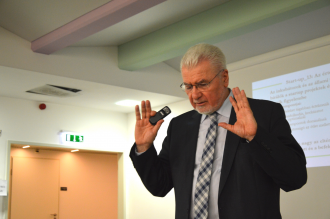
|
József Pálinkás, NRDIO
|
|
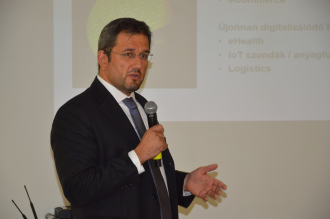
|
Szabolcs Valner, Digital Factory
|
|
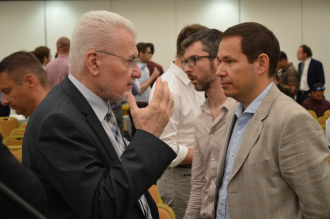
|
József Pálinkás, Péter Tánczos (Euroventures)
|
|
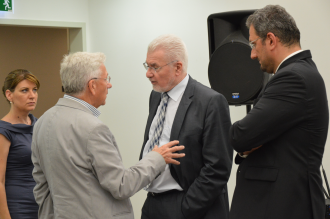
|
János Pakucs (Hungarian Association for Innovation), József Pálinkás, Szabolcs Valner
|
|
The representatives of the community of innovative businesses were also given the floor in the forum. According to the views expressed at the round-table discussion of venture capitalists, investors appreciate in the new funding scheme that diligent incubator houses can give a character to the somehow abstract and impersonal public financer. Thus, the system encourages applicants to sincerely and realistically consider their possibilities, an attitude that is more typical to relations with private investors. However, it is only one of the functions of incubator houses to provide seed capital (which is usually granted by the family or friends in the American model) until an innovative idea reaches the stage where it can draw the attention of potential investors. Their other function, the provision of expert support and experience during the mentoring process, is equally important as it helps the startup avoid initial mistakes that later cannot be remedied, build a solid team, which is considered as the engine of the business (a key element of the implementation), and thus shorten the time for orientation and maximise the chances for survival.
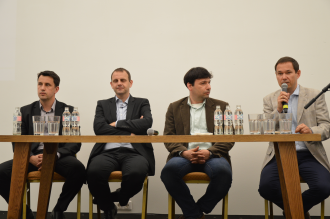
|
Round table of investors at the forum
|
|
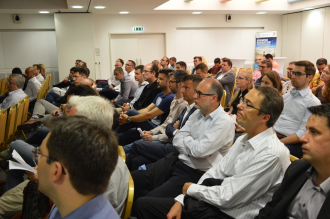
|
The conference room of Akvarium Klub
|
|
As an interesting “side-product” of building the ecosystem, a new platform for university-industry-economy cooperation may be established, as universities not always have the capacity to market their research findings – experts from the knowledge transfer offices emphasised at the university round-table discussion. Although, the typical volume of administrative burden on higher education institutions may seem exaggerated from the perspective of a business company, the intellectual properties and research services created by universities and research centres can boost innovation in startups as well. Participants of the forum said that potentially marketable research findings generally need further research and development. So such research findings are usually still far from being marketed, however, incubator houses can – serving mutual interests and pursuing mutual benefits – bridge the gap towards actual business opportunities, and can also contribute to clarifying intellectual property issues.
The Digital Factory’s forum aimed to help actors of the startup ecosystem share their experience gained in recent years, and to create cooperation opportunities – Szabolcs Valner, CEO of Digital Factory Ltd said, adding that incubator houses contribute to the success of startup businesses and significantly shorten the time required for orientation and validation. He said that the startup incubation methodology can be further developed in the upcoming period by enabling that incubator houses, investors and various scientific workshops work together on well-coordinated, internationally competitive project plans.
Updated: 14 December 2017












